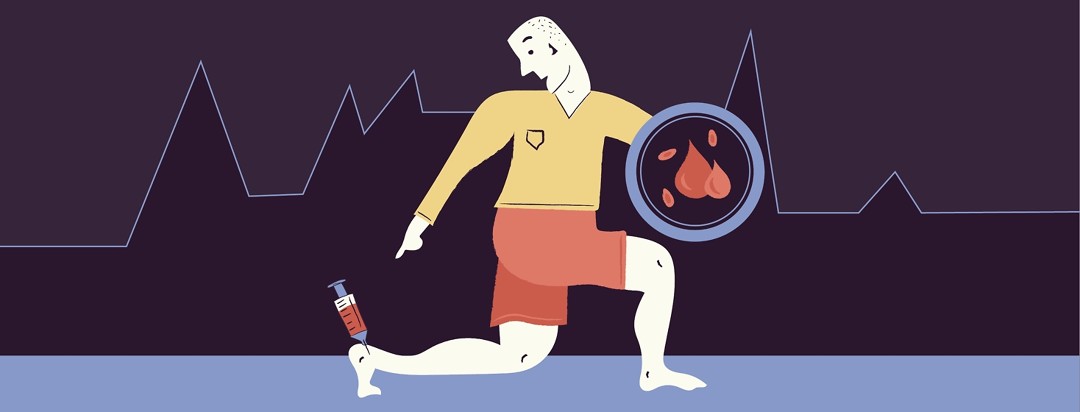Fatigue - Can It Be Analyzed?
Admit it, you’re as tired hearing about fatigue as you are tired
Raise your hand if you don’t have an issue with fatigue.
C’mon don’t be shy, let us see who you are.
Well, ok. That’s what I thought.
Can I measure this fatigue thing?
Most of us have some sort of fatigue associated with cancer or the drugs used to treat it, with many of us having serious issues.
Fatigue can be a game-changer. It affects all of us differently, but there is no doubt it, it is there. I’m sure many of you are like me in that you read quite a lot in the talk forums and in blogs, with Blood-Cancer.com being my primary go-to, of course. Fatigue may be the top subject discussed.
Well, here’s another blog, with hopefully, a slightly different perspective...
Other than my back and bone pain, fatigue has been my Achilles heel. I knew any direct action on my part wasn’t going to immediately improve my bone pain issues, so I decided to try to analyze my fatigue.
Are there constants?
I first started timing my good periods and bad periods to the clock to see if there was any consistency in the time of day when fatigue reared its ugly head. Part of that tracking included when I took a nap and what impact, if any, it had on me. I also started to track whether or not it showed up worse during drug cycles, like the beginning and end of my three-week Revlamid cycle.
Once I felt like I had a handle (as if that is actually possible) on time of day and drug impact, I started monitoring my blood work results more. I would look at things like dips in my red blood and hemoglobin counts. At one point early on, I about gave up on that. I was probably the most fatigued I had been in months, yet all my counts were in pretty good shape, but hemoglobin was trending down.
At that time though, I realized that when I went for my daily walk, my leg muscles were burning particularly more than usual. It felt like I wasn’t getting oxygen to those muscles. I then recalled having an iron and ferritin deficiency soon after my BMT, so requested a blood test. Bam! I had almost no iron, ferritin, and a low TIBC (total iron binding capacity). Although this was one data point, it was a good one to start from.
The next time my energy took a tremendous dip and my muscles started burning, I checked it again. Back to nothing... Two data points are always better than one.
I then worked with my oncologist/hematologist and my daughter (nutraceutical expert) and clinicians at her company, to come up with a supplement that could boost my iron, ferritin, and absorption rate. I was already eating a diet high in iron, so I started taking the supplement and so far, so good. Hopefully, I have helped one fatigue spiking issue. My measurements have stayed good and, overall, energy is better.
Some discoveries
Here is what I found worked for me:
- My energy is best from about 7AM to about 1PM. That is when I try to accomplish my major tasks of the day. If I am super busy or active, I can normally push through to later. I also have a short spike around 8 to 10 PM, but don’t count on it unless I have napped. My worst fatigue is in late afternoons through early evenings.
- If I take a nap in the early afternoon (no more than one hour), I have a higher energy in the afternoon and evenings. If I wake from a nap later than about 4PM, I just don’t seem to recover as well.
- My worst period for Revlamid-associated super fatigue is usually at the start of my second week in the three-week cycle.
- My iron supplement seems to be working and doing its job, along with the other supplements I take. The ones I take have helped a lot, but please work with your onc/hemo before taking any supplements, so they can be matched to your situation.
I realize that we are all different with our body’s reactions to our blood cancers, bmt’s, and drugs. So my journey will be different from yours.
I do feel though that the measured approach I have taken has helped tremendously. Am I back to the energy levels I had pre-cancer? No way. Not even close. But I do know that there are some things I can do to at least lessen some of the fatigue.
Good luck in your discoveries.
Community Poll
Have you taken our In America Survey yet?

Join the conversation